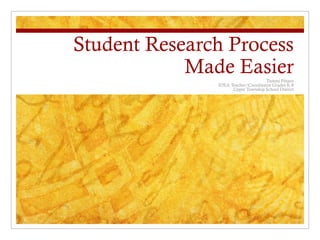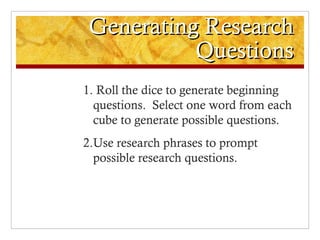This document discusses teaching research skills to students from kindergarten through 8th grade based on Common Core writing standards. It outlines how the standards introduce research concepts starting in kindergarten with guided participation and progressing to more independent research projects by 4th grade. The document provides guidance for teachers on assessing student interests, developing research questions, planning investigations, locating resources, avoiding plagiarism, and presenting findings. The goal is to make the student research process easier by building skills incrementally over several grade levels.








































